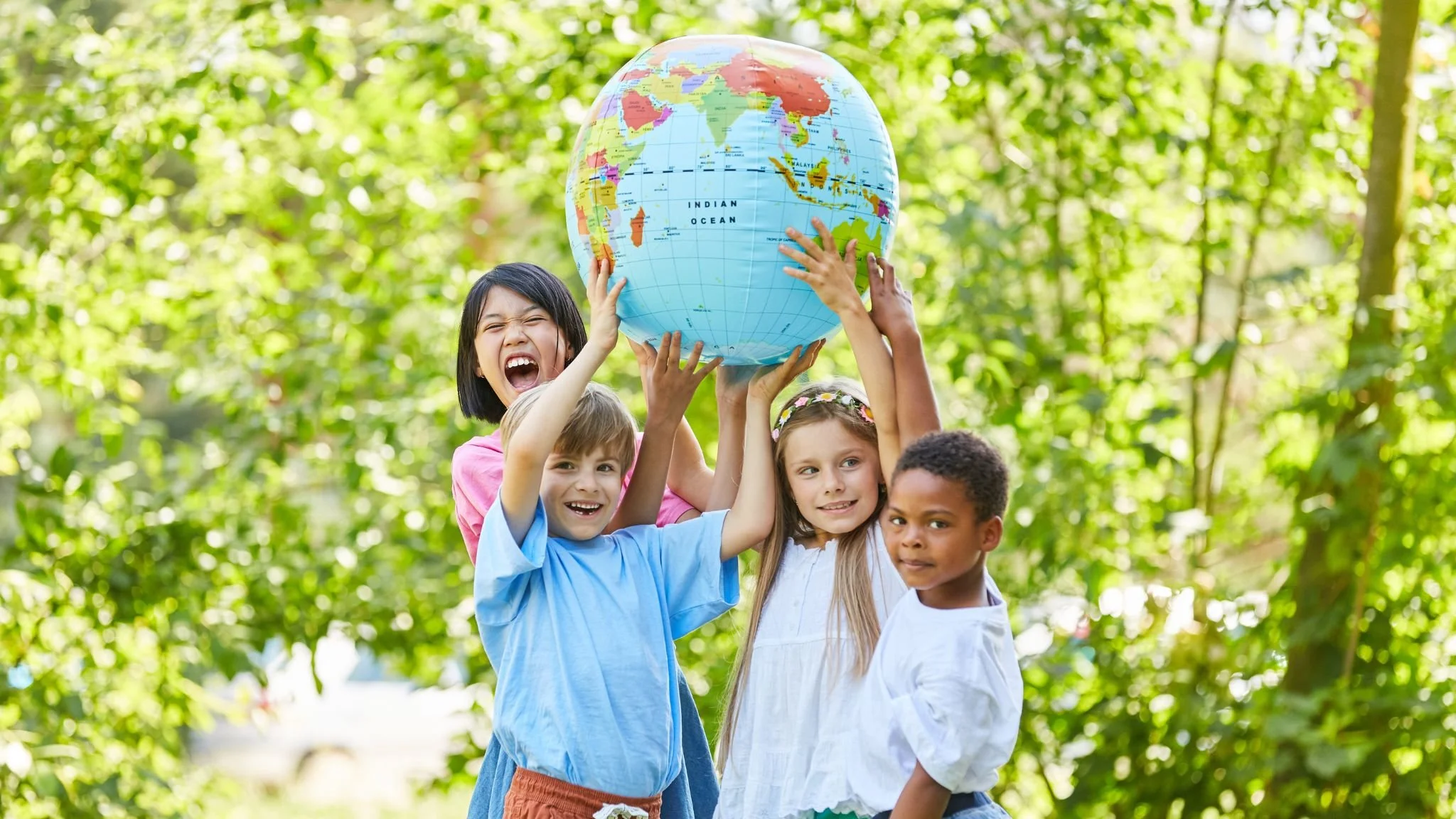The Impact of Climate Change on Children and Youth
Understanding the effects of ecological shifts on the mental health of future generations
Our children will inherit this Earth.
There is a lot of pressure not just on adults to protect the planet, but also on the next generation of youth. And we can be sure that they are taking notice of these issues too!
In the last few years, climate anxiety or eco-anxiety has become an increasingly popular word. It means, distress relating to climate & ecological crises. While anxiety and worry are normal, even expected, responses to negative events, these feelings can make it difficult to function if left unchecked.
These fears may appear after experiencing an ecological crisis. Families may have had to evacuate because of forest fires or floods or may have had to adjust their lifestyle because of food and resource shortages. Even heat waves have been shown to negatively affect mood and disrupt sleep.
There are also the effects of vicarious stress such as hearing about climate change on the news or from scientists warning us about the lack of clean water and biodiversity. And with all the constant news coverage and dire warnings, it’s no wonder that 75% of youth (age 16-25) say the future is frightening and 54.9% believe they won’t have access to the same opportunities as their parents.
Children and youth are becoming more and more knowledgeable about the climate crisis.
There’s a saying that children are like sponges, soaking up information and building connections in their brains.
It’s important for kids to learn about climate change so that they can understand the impact that human activities have on the environment and take action to protect the planet. Many schools are incorporating climate change education into their curriculum so that students can learn about the science behind climate change and the ways in which it affects the Earth. Documentaries and social media are also resources for kids to learn about climate change and the ways in which they make a difference. They can also learn about climate change through their friends and other people they interact with. And while knowledge is power, when it comes to our kids, we need to be attentive to what their consuming and how it’s impacting them.
What messages are children and youth learning about climate change?
Awareness of the external conversation is key to monitoring what our kids are exposed to.
When it comes to climate change, there seem to be a lot of varied ways of thinking and it can be confusing to wrap our heads around it all. Let’s take a brief look at some of the general perspectives on this topic that can be helpful and unhelpful.
HELPFUL PERSPECTIVES:
climate change is real and our individual and collective choices can have an impact
there are ways to take action to reduce our carbon footprint
new technologies to reduce greenhouse gas emissions are being created and improved such as solar and wind power
reducing waste and conserving resources such as water and energy are vital
climate change disproportionately affects marginalized communities
it’s important to work toward climate justice
UNHELPFUL PERSPECTIVES:
the denial of the existence of climate change or the downplaying of its severity
focusing solely on individual actions to the exclusion of collective action and systemic change
messages that promote fear and anxiety without providing constructive solutions
it’s too late to take action or the problem is too big to solve
We need to tune into how our children are feeling about the future.
Let’s understand how climate change affects our children’s emotional well-being and mental health and listen to their concerns and fears.
A global survey of youth from 10 countries found that 59% were feeling very to extremely worried about the future. The most common emotions reported were: sadness, anxiousness, anger, powerlessness, helplessness and guilt. These fears and worries are very real and hard to discuss because there is no easy solution or perfect response when your child asks you about climate change and what will happen in the future. We constantly tell our kids that they are the future caretakers of this world, so it’s no wonder they are alarmed.
While the future remains to be seen, the anxiety and helplessness youth are feeling now are very real.
These negative feelings are not only because of the environmental disasters they see on the news and in real life, but because kids don’t feel like they have a voice. Although we may want to protect children from bad news, not knowing can add to their anxiety. 48% of youth reported that they were dismissed or ignored by other people concerning climate change topics. Sometimes we cope with the anxiety of climate change by dismissing, ignoring, rationalizing or negating the experiences of others. We are sometimes hesitant to talk about the scary things that can happen in the future because we don’t want to expose children to the scary possibilities, but being dismissed or not knowing can increase feelings of frustration and powerlessness.
Another factor increasing the anxiety of youth is the role and involvement of the government in relation to climate change. Feelings of eco-anxiety are often accompanied by beliefs that government actions are inadequate, feeding into the belief that there is no one on their side. Those who felt betrayed by the government reported more negative thoughts. Especially for teens moving into adulthood, this may be an important topic for them to explore as they are learning about their voting rights and responsibilities.
“The greatness of a community is most accurately measured by the compassionate actions of its members.”
The role of community.
Different children cope in different ways which can be important to the development of self-efficacy and engagement in the world. One factor that appears to help is community. Emphasizing the importance of group action can make individuals more likely to act, increasing their perceived self-control and ability to make a difference. It reminds kids that they are not alone in this fight. In fact, climate activism is associated with resilience and positive development. Here are some ways that can help children and youth build and engage in community:
encourage your children to participate in extracurricular activities or clubs that align with their interests
get involved in your community by attending local events or volunteering with community organizations
connect with other sustainably-minded parents and families by organizing playdates or family outings
encourage your kids to get to know their neighbours and build relationships with people
support your children in participating in community-based programs that focus on environmental issues and sustainability
connect youth with like-minded individuals and organizations that are working to address climate change
While concern for the climate is normal, it’s important to make sure our distress does not get out of hand. While concern can motivate kids (and adults) to act and learn more about the topic, elevated levels of worry can stop kids from living their lives. As the effects of climate change continue to increase, it is crucial to ask yourself how your children are reacting to the news and if what they are experiencing may be eco-anxiety or climate grief and to reach out for support from a mental health professional.
We offer a community of care.
Whether you're facing a current challenge, a past pain, or are simply feeling stuck in this phase of your life, we can help you to live the life you want with intention, mindfulness and balance.
We offer free 15 minute consultations.
Connect with us and let’s talk about how we can help you.
SOURCES:
The Lancet Climate anxiety in children and young people and their beliefs about government responses to climate change: a global survey
National Library of Medicine Commentary: Proactive practices to support youth coping with climate change
Springer Link The Effects of Climate Change on Child and Adolescent Mental Health: Clinical Considerations


